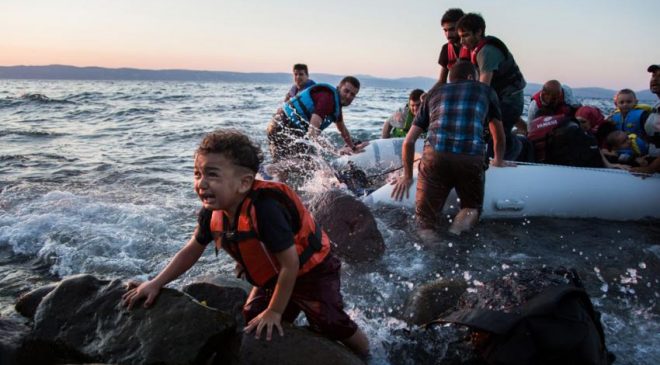
The same February day that Tunisia’s president warned of a “criminal plot” to overwhelm this predominantly Arab country with Black Africans, Komenan Assa’s landlord evicted her. “He told me to take my baby and go,” said Assa, a 25-year-old Ivorian who moved to this port city five years ago. “It was clear to me: He was a racist who believed the president.” Weeks later, amid an eruption of aggression against Black Africans that followed the president’s embrace of a “great replacement” conspiracy theory, Assa joined the exodus of people trying to escape. Her group made it eight hours in a flimsy steel boat, overpacked with migrants, before the vessel overturned in the Mediterranean Sea. As passengers struggled, her baby, Musa, was kicked out of her arms and drowned. Her boyfriend screamed her name before he went under, too. Assa drifted on an inner tube for another two days before fishermen found her. Now back in Sfax, robbed and spit on since her return, she is saving money with one goal: another run at the sea. “I cannot stay in this intolerance,” she said. Accounts like Assa’s help explain a startling surge in migration to Europe this year — a surge propelled not just by well-established factors such as war, famine and poverty, but also by a violent campaign against Black Africans in Tunisia, inspired by the rhetoric of white nationalists.
“The president set a fire of hatred and hasn’t been able to put it out,” said Ramadan ben Amor, spokesman for the Tunisian Forum for Economic and Social Rights. “It may take years for this hatred to ease. Now, the bodies of Sub-Saharans are washing up on our beaches because they have been pushed to board death ships to Europe.” While the numbers have fallen on most of the main migration routes to Europe compared with the first five months of last year, the figure has more than doubled for those arriving via the central Mediterranean, according to Frontex, the European border patrol agency.
Michael Bio, a 29-year-old graduate student from the Ivory Coast studying aeronautical engineering in Tunis, described the anti-Black aggression as “terrifying.” “If you were Black and in the streets, you were going to get arrested — or you were going to get hurt,” he said. Following a rash of attacks, universities arranged online classes so students could shelter in place. Bio said he took in three other students who had been kicked out of their homes. In Sfax, The Post spoke with four survivors of a May 23 robbery and machete attack by Tunisian youths that left them with stab wounds and a crushed eye. A fifth man — a 34-year old father of four whom they described as their “mentor” — died of head injuries.
They knew the boat could sink. Boarding it didn’t feel like a choice. Ibrahim Mokhtar, a soft-spoken 22-year-old from Benin and one the survivors, noted that Tunisian police had already made several arrests in their case. “They are taking it seriously,” he said. And Tunisian neighbors, he said, had rushed them to a hospital. Other Tunisians, he said, had offered them guidance on how to report the crime. “Tunisians have also helped us,” he said. But, he said, the four remain afraid. “We will not leave our homes after 5 p.m.,” he said. “The city is dangerous for us. It is dangerous.”
